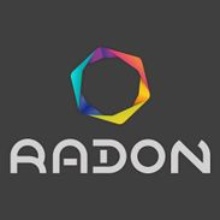Project Description
RADON offers an advanced DevOps framework to help the European software industry to adopt serverless FaaS technology, while avoiding lock-in within a specific FaaS provider. The RADON framework consists of an integrated methodology and an open source toolchain, to define, evolve, and operate event-centric applications that consume serverless functions, allowing a high-degree of reuse and automation of functions, services and associated data pipelines.
Emerging serverless computing technologies, such as function-as-a-service (FaaS) offerings, enable developers to virtualize the internal logic of an application, simplifying management of cloud native applications and allowing cost savings through billing and scaling at the level of individual function calls. Serverless computing is therefore rapidly shifting the attention of software vendors to the problem of developing cloud applications that can use these platforms. RADON aims at creating a DevOps framework to create and manage microservices-based applications that can optimally exploit serverless computing technologies. RADON applications will include fine-grained and independently deployable microservices that can efficiently exploit FaaS and container technologies. The end goal is to broaden the adoption of serverless computing technologies within the European software industry. The methodology will strive to tackle complexity, harmonize the abstraction and actuation of action-trigger rules, avoid FaaS lock-in, and optimize decomposition and reuse through model-based FaaS-enabled development and orchestration.
This project has received funding from the European Union’s Horizon 2020 research and innovation programme under grant agreement number 825040.
European Partners
- Imperial College of Science, Medicine, and Technology (United Kingdom)
- Stichting Katholieke Universiteit Brabant (Netherlands)
- XLAB razvoj programske opreme in svetovanje d.o.o (Slovenia)
- Tartu Ülikool (Estonia)
- Athens Technology Center SA (Greece)
- Engineering Ingegneria Informatica (Italy)
- University of Stuttgart (Germany)
- Praqma A/S (Denmark)


